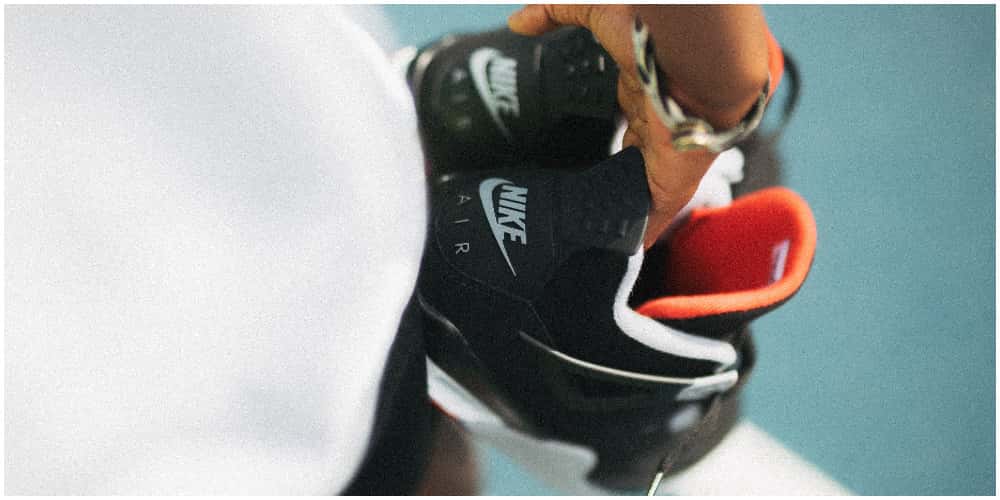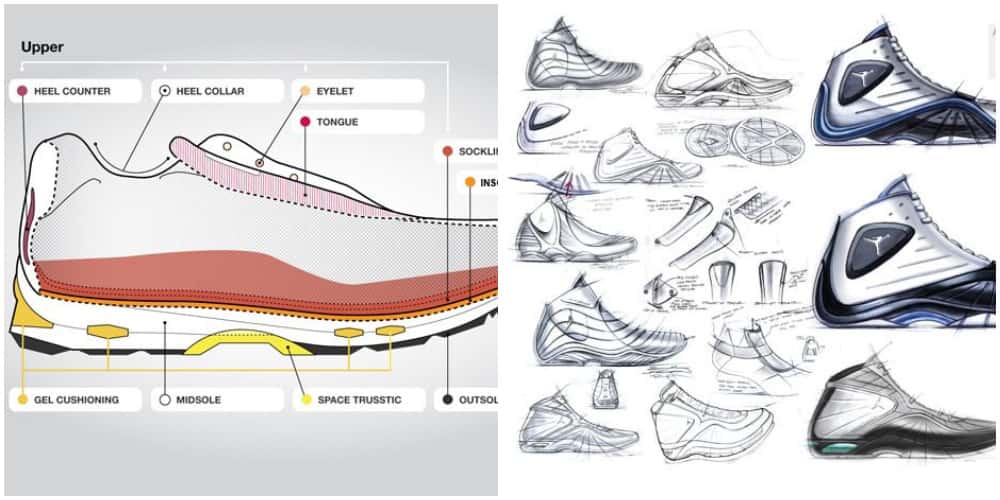
Are Basketball Shoes Good for Running?
Last updated on May 8th, 2022 at 11:13 am
We’ve all been there. Those days that you just want to grab the nearest pair of sneakers and take them for a pick-up game.
It could be a change in routine or just a one-time thing. While it might seem like a no brainer to take your basketball sneakers with you in your running workouts, there are a lot of things that you should put into consideration
Running shoes and basketball shoes or other sneakers have plenty of differences. These disparities could be in the design, comfort, stability or traction-wise. That is why many at times, many sports scientists highly recommend using the right sneakers/shoes for each sport.
Apart from the above-mentioned factors, the running surface or terrain and the running distance also play a critical role as to whether you can use your basketball shoes or not.
Muddy or rocky terrains tend to be more exclusive to certain running shoes. That is why you should also get to know which running shoes are suitable for which terrain or environment.
Many pro athletes tend to get into the nitty-gritty and that is why they can perform at optimum levels.
Even if you are not a pro runner, it is important to fully understand how a given pair can impact your overall performance and health. Finally, before picking up that pair of sneakers, it is important to put into consideration the type of athlete that you are.
Are you a short distance runner, hobbyist, track runner, long-distance runner or a marathon runner? That said, are basketball shoes good for running?
Are Basketball Shoes Good for Running?

Running in basketball shoes is not recommended mainly due to the difference in design and weight between running shoes and basketball shoes. The design of the basketball shoes makes the shoes unsuited for long-distance/track running.
While a basketball shoe’s overall design suits the basketball court, a running shoe comes with a design, best suited for varying terrains.
In addition, basketball shoes tend to come with flatter and more flexible rubber soles that are ideal for basketball courts. On the other hand, a running shoe often comes with plenty of groves that offers grip and traction in varying terrains and surfaces from concrete to grass.
Moreover, due to the bulkiness of basketball shoes, running in basketball shoes can often lead to fatigue or make running much harder due to the weight of basketball shoes. However, if you intend on doing short running trips or taking regular runs on a basketball court, then there is no hard in tagging your basketball shoes along.
Differences Between Running and Basketball Shoes

Outsole
Basketball shoes tend to come with flat outsoles which in turn offer plenty of traction and grip when running in basketball courts. Many of the basketball shoes in the market often come with a rubber outsole.
To keep the basketball shoe light, many shoe manufacturers tend to make the outsole of these shoe thinner. While the flexibility of the rubber outsole in basketball shoes varies from one unit/brand to the other, basketball shoes do not have the most flexible outsoles in the market.
They simply do not have to be when you think about it. All these shoes come with a design that addresses the need and pain points of a basketball player.
On the other hand, a running shoe often comes with plenty of grooves on the rubber outsole for better traction and grip in multiple surfaces. The explicit grooves of running shoes make the shoe suitable for rocky, concrete and grassy terrains.
It is important to note that the thickness of the outsole of running shoes often varies from thin to thicker, all depending on the terrain that you will be running on. Running shoes for trails often come with the thickest outsole to offer the runner more protection when running.
Despite having varying thicknesses, running shoes tend to be more flexible in comparison to basketball shoes. That said, running shoes come with a design that suits the need of each individual runner.
Heel Counter
The shape between basketball shoes and running shoes differ greatly as one comes with a high heel counter and the other one doesn’t. The high heel counter on basketball shoes ensures that the shoe can provide proper ankle support to the player.
On the other hand, a running shoe does not come with an ankle support system. This is mainly because running requires plenty of ankle mobility. We can also attribute this to the fact that running does not involve quick cuts, movements or plenty of jumping.
In addition, while the insole/midsole of running shoes is also flat, it is not as flat as that of a basketball shoe. It comes with a shape that helps the feet adapt to the motion of running.
Weight
Running shoes are comfortable and light in weight. This in turn makes them more suitable for long-distance running and not for sudden bursts or changes in speed. While the weight of a running shoe varies from one shoe to another, a typical running shoe weighs about 9.5 ounces/ 270 grams.
Unlike men’s running shoes, women’s running shoes are smaller and thus tend to weigh even less. The weight of a running shoe does matter as it can impact the overall performance of a runner.
Unlike running shoes that tend to be lighter, basketball shoes on the other hand are bulkier than running shoes. We can attribute the bulkiness of the basketball shoes to the type of material and cushioning used in these shoes.
Basketball players require a different type of cushioning as the game involves plenty of jumping, quick short sprints and sudden changes in direction every few seconds. Technically, basketball shoes come with a design that offers proper shock absorption and ankle stability.
That said, running in basketball shoes will not only make running harder but can lead to increased fatigue because of the bulkiness of running shoes.
Verdict
Wearing basketball shoes for long-distance/track running is not a great idea mainly because of the differences in design and weight between running and basketball shoes. The bulkiness of basketball shoes will severely affect your overall performance as a runner.
